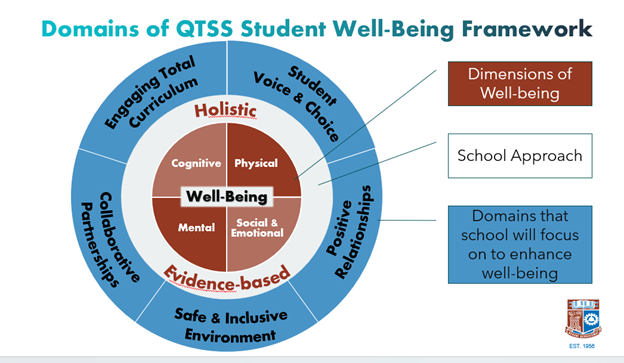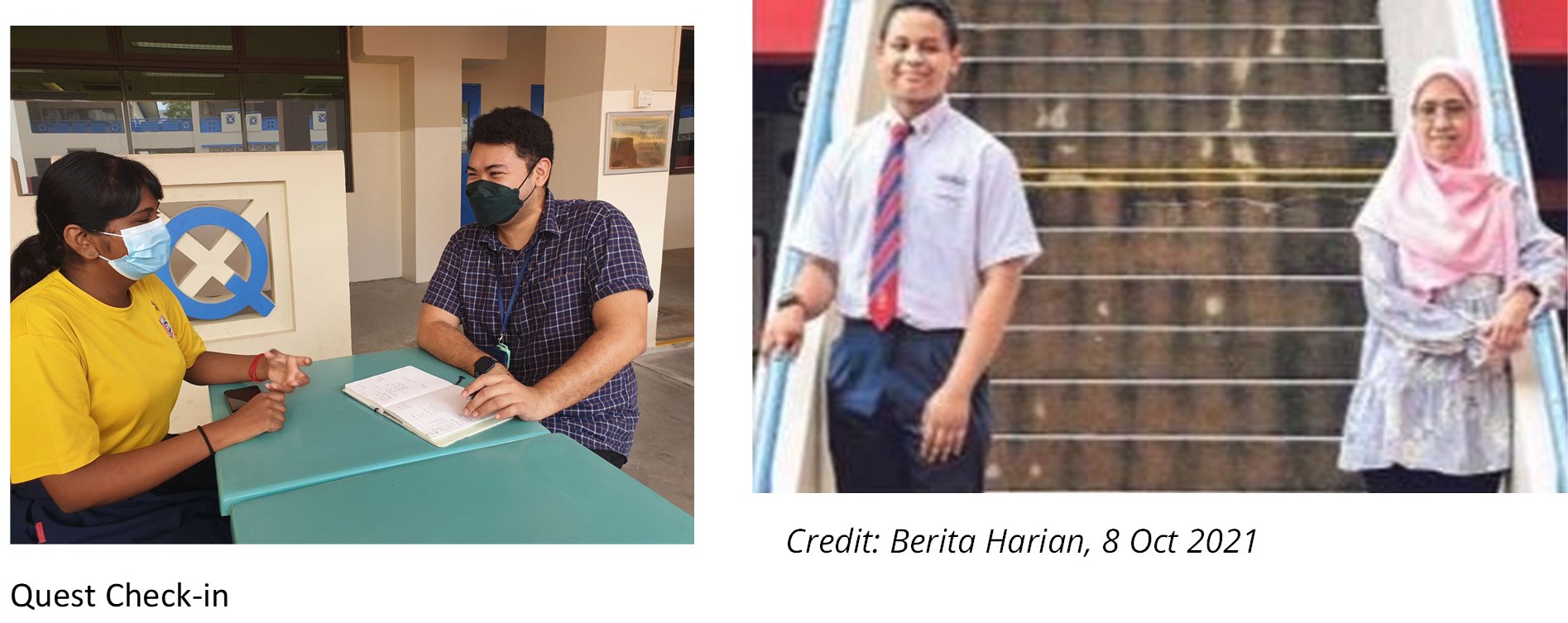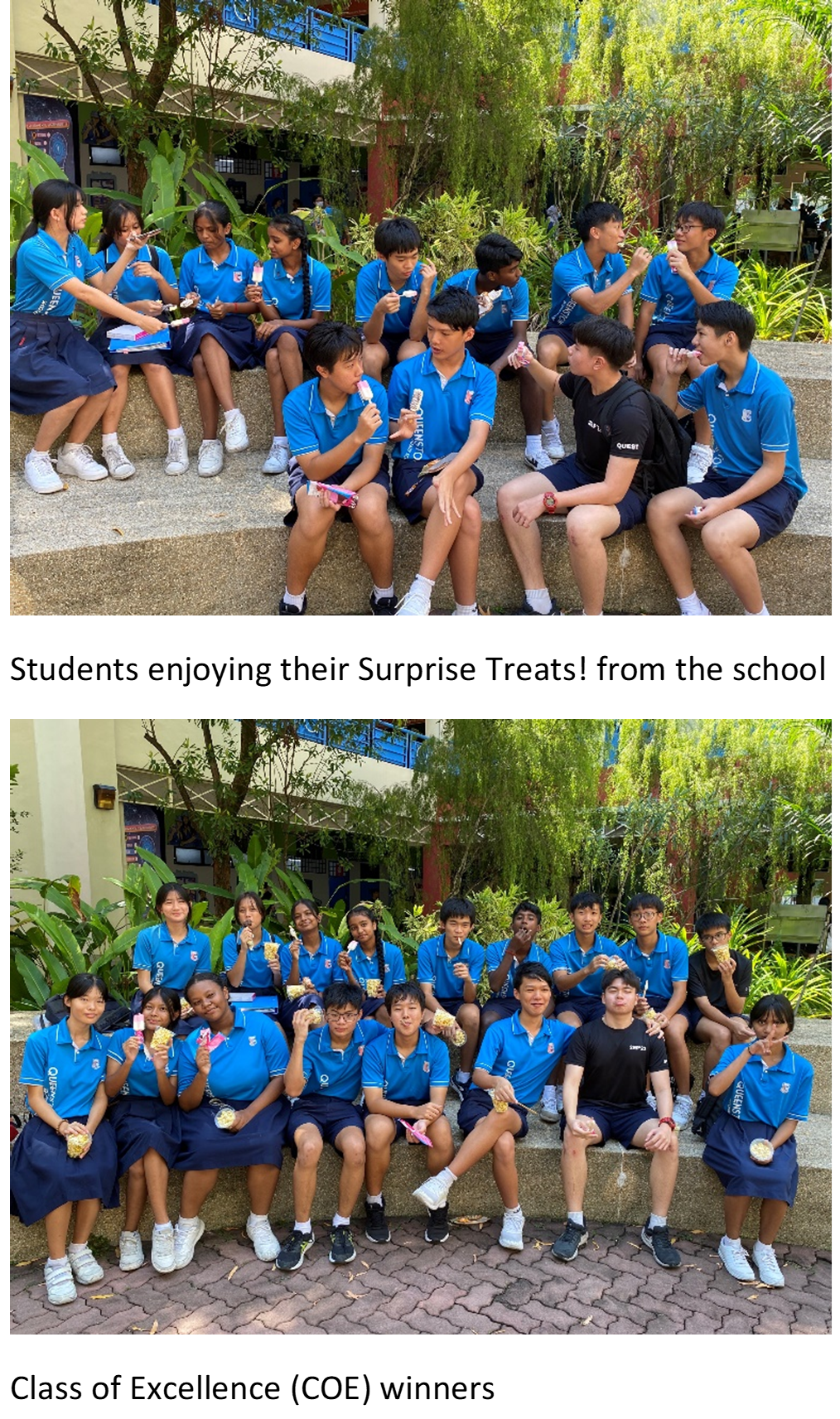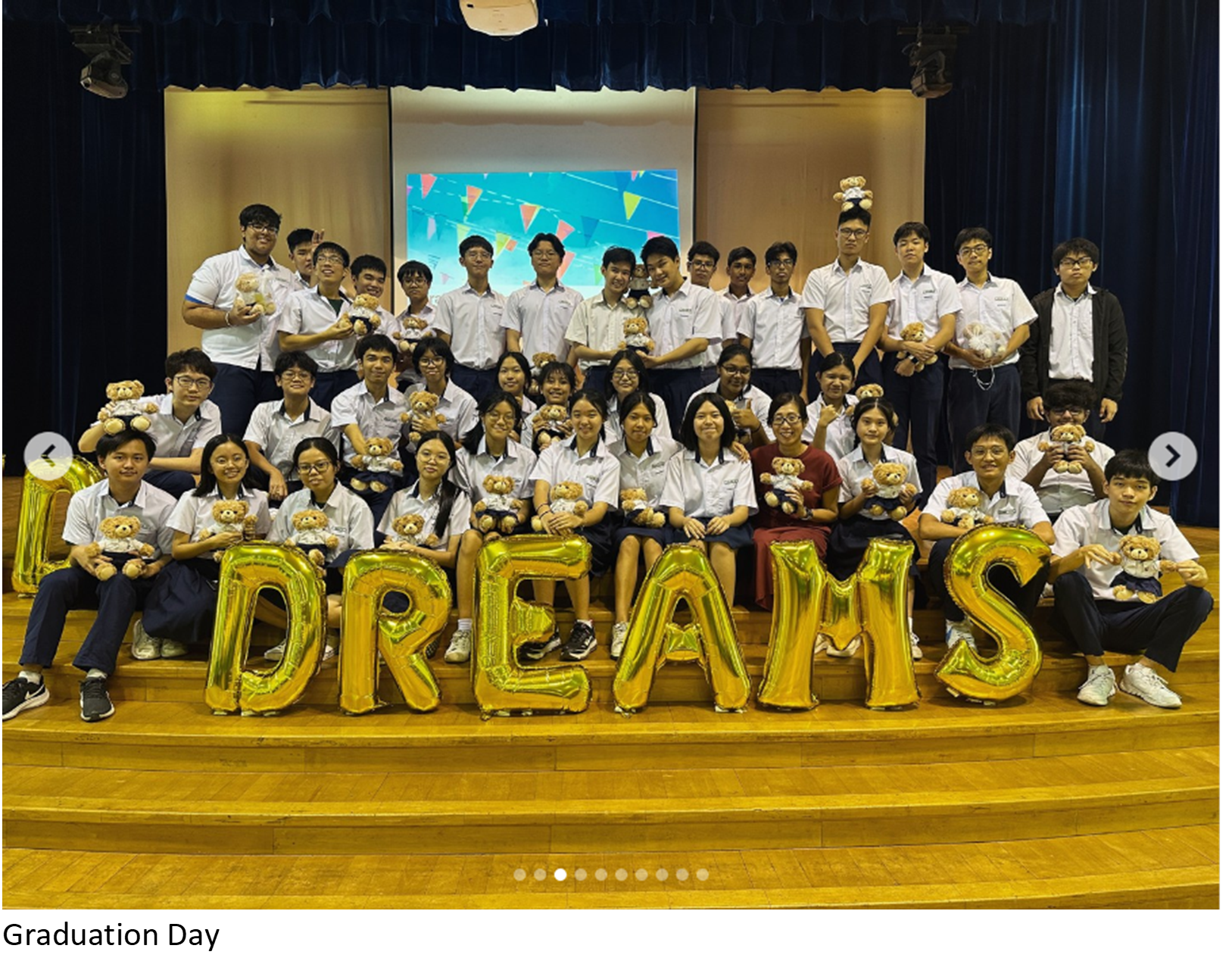Student Well Being
Student Well-Being
The Quest to...
Develop every Queenstownian into growing and flourishing learners.
Key Approaches

In QTSS, we place the holistic well-being of our students at the centre and focus on 5 different domains to enhance their well-being. Our framework is premised on Positive Psychology and the five building blocks of the PERMA Model by Martin Seligman (Positive Emotions, Engagement, Relationships, Meaning, Accomplishment).
Engaging Total Curriculum
· The school’s total curriculum engages the students in meaningful learning activities, instilling in them, the disposition to learn for life as well as equipping them with the knowledge, skills and 21st Century Competencies to thrive in the future.
· Character and Citizenship Education (CCE) lessons provide the platform for CMs to conduct school-based programmes e.g. Growth Mindset and just-in-time well-being packages.
· Start Right and Finish Strong Programmes are facilitated at the start and end of each term to help students set goals and review their progress.
Student Voice & Choice
· Students are active participants in their own learning and well-being. Their perspectives and interests are used to actively shape their school experiences, engendering student agency.
· Student Voice is a digital platform to encourage student voice for school matters and helping them feel connected and valued in the school.
Positive Relationships
· Regular Quest Check-ins are conducted to build positive Teacher-Student Relationship (TSR).
· Peer support and networks are also strengthened within and beyond the class to foster a deeper sense of belonging.
Safe and Inclusive Environment
· Student surveys e.g. well-being and check -in surveys and social network analysis are administered regularly to understand the needs and emotional state of students as well as understand peer relationships within the class.
· Class of Excellence (COE) Challenge helps to nurture a positive class culture for learning and affirm classes which have performed well.
· Diverse student needs are supported and students are empowered through opportunities to pursue their passions.
Collaborative Partnership
· Families and communities collaborate as partners with the school to support student learning, safety and well-being.
· Parent Engagement sessions and Parent-Teacher Meetings are organised to communicate level outcomes and focus at each level and to inform parents of the academic progress of students.
· The school also leverages external agencies e.g. Family Service Centres to complement school’s support for students.



Key Learning Experiences
Whole School
-
Quest Check-ins
-
Start Right and Finish Strong Programmes
-
School-based Programmes, for e.g. Growth Mindset and just-in-time well-being packages.
-
Student Surveys
-
Class of Excellence (COE) Challenge
Targeted Support and Intervention
· School Counselling:
Counselling is a collaborative process in which the school counsellor facilitates the expansion of the student’s view of life, enlarges his/her repertoire of coping resources and enables him/her to make choices for change in himself/herself, the situation and the environment, without destructive consequences to self or others. Students who experience difficulties in issues such as academic stress, anxiety, peer or family relationships may be referred for counselling support.
· Student Welfare:
Introduced in 2015, Student Welfare Officer (SWO) supports vulnerable students whose schooling is affected by disadvantaged backgrounds. SWO reaches out to students who are irregular in school and helps to reintegrate chronic absentees back to school. Community resources are often mobilised to mitigate the risks and support the needs of the students and their families.
· Special Educational Needs:
Special Educational Needs Officers (SENO) support students with special educational needs (SEN). They provide targeted learning and behaviour support through individual or small group intervention and/or skills training and/or in-class support based on the needs of students with SEN. Their support is invaluable in enabling students to achieve their goals. In addition, they reach out to families of students with SEN to build home-school partnerships and strengthen the support for students.

